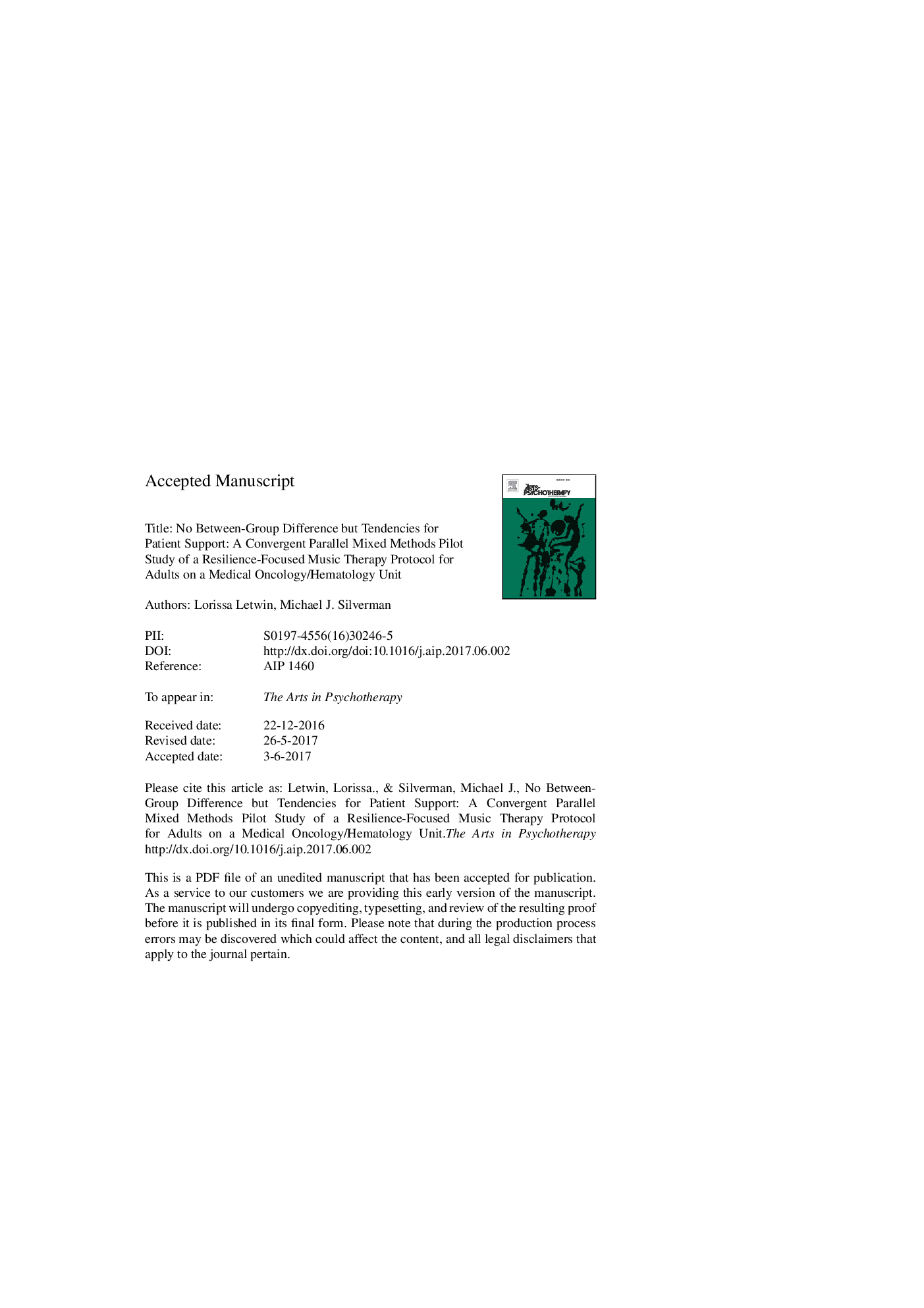ترجمه فارسی عنوان مقاله
تفاوت بین گروهی، اما گرایش برای حمایت از بیمار: یک مطالعه آزمایشی از یک پروتکل موسیقی تراپی متمرکز بر انعطاف پذیر برای بزرگسالان در واحد انکولوژی / هماتولوژی پزشکی
عنوان انگلیسی
No between-group difference but tendencies for patient support: A pilot study of a resilience-focused music therapy protocol for adults on a medical oncology/hematology unit
| کد مقاله | سال انتشار | تعداد صفحات مقاله انگلیسی |
|---|---|---|
| 154787 | 2017 | 41 صفحه PDF |
منبع

Publisher : Elsevier - Science Direct (الزویر - ساینس دایرکت)
Journal : The Arts in Psychotherapy, Volume 55, September 2017, Pages 116-125
ترجمه کلمات کلیدی
سرطان، انکولوژی، انعطاف پذیری، موزیک درمانی، تصادفی روش های متفرقه، درد،
کلمات کلیدی انگلیسی
Cancer; Oncology; Resilience; Music therapy; Randomized; Mixed methods; Pain;

